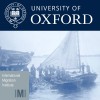THEMIS: “How to get into London?”: the role played by travel agencies to move Brazilian migrants to the UK
How have Brazilian migrants moved into London after the September 11? Who are the social agents and what are the social conditions of movement involved in such mobility? Since 9/11 the EU have reinforced its borders and mobility control in the airports in order to stop undesirable mobile people, including undocumented migrant workers. As a consequence Brazilian migrants have created escape routes to literally escape from that mobility control (Papadopoulos et al. 2008, Frontex 2011). Considering the fact that migratory mobility is not just a matter of network involving kinship and relatives, this paper follows the argument that behind migration there is an informal industry which provides the mobility according to global politics and events (Khosravi 2010). Therefore, through an empirical study on Brazilian migration from Minas Gerais state to London, this presentation attempts to discuss how migration routes are carefully organized through package tours by travel agencies managed by pioneers, who became specialized in providing tactic of border crossing movement after the 9/11. Such tactic aims to transform the migratory mobility of those migrant workers into a more desirable type of mobility, the touristic one (Adey 2004). In other words, they have promoted a border-crossing movement able to ensure the connectedness between Brazil and the UK through any small airport hubs located in the Schengen area and British territory where the surveillance, according to them, is less strict to tourists. As a result this paper argues that due to the border reinforcement adopted by the EU after the terrorist attacks (Balibar 2002, Mezzadra 2007), friends and family members abroad are not the only ones who provide support to Brazilian emigrating to London, a migratory industry composed by specialized pioneers and their travel agencies have also played important roles in such mobility (Bakewell, de Hass and Kubal 2011).




